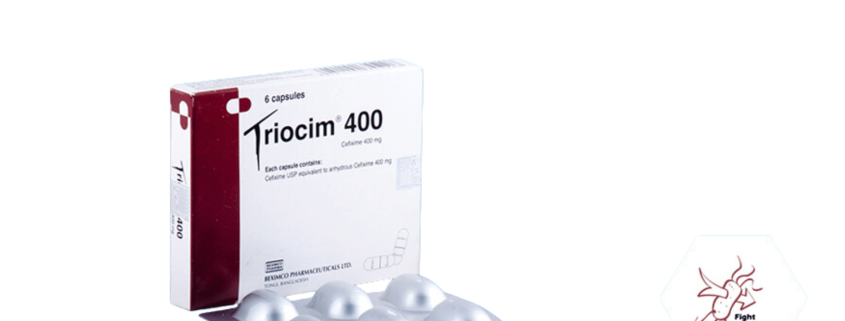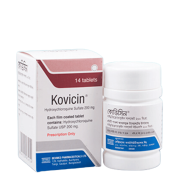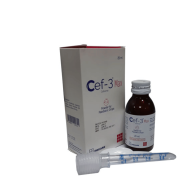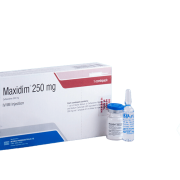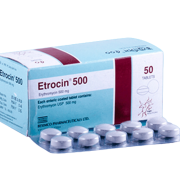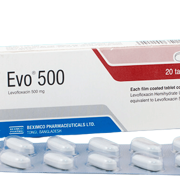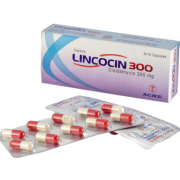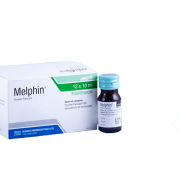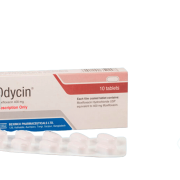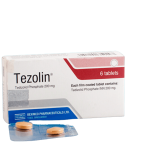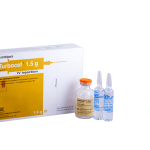Triocim
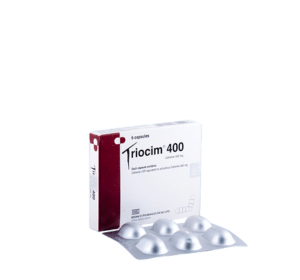
Generic Name: Cefixime
Dosage Form: Capsule, Suspension
TG Name: Anti-infectives
1. What Triocim® is and what it is used for?
Triocim® (Cefixime) is a 3rd general oral cephalosporin used to treat infections caused by bacteria such as pneumonia, bronchitis, typhoid, gonorrhea, ear, lung, throat, and urinary tract infections. Antibiotics will not work for colds, flu, or other viral infections.
2. Before you take Triocim®
Some medical conditions may interact with Triocim® (Cefixime). Tell your doctor or pharmacist if you have any medical conditions, especially if any of the following apply to you:
- if you are pregnant, planning to become pregnant, or are breast-feeding
- if you are taking any prescription or nonprescription medicine, herbal preparation, or dietary supplement
- if you have allergies to medicines, foods, or other substances
- if you have had a severe allergic reaction (e.g. severe rash, hives, difficulty breathing, dizziness) to a penicillin (eg, amoxicillin) or beta-lactam antibiotic (e.g. imipenem)
- if you have diarrhea, stomach or bowel problems (e.g. inflammation), bleeding or blood clotting problems, liver problems, or poor nutrition
- if you have a history of kidney problems or you are on dialysis treatment
Some MEDICINES MAY INTERACT with Triocim® (Cefixime). Tell your doctor or pharmacist if you have any medical conditions, especially if any of the following apply to you:
- Anticoagulants (e.g. warfarin) or carbamazepine because the risk of their side effects may be increased by cefixime
- BCG vaccine or a live typhoid vaccine because their effectiveness may be decreased by cefixime
Ask your health care provider if cefixime may interact with other medicines that you take. Check with your health care provider before you start, stop, or change the dose of any medicine.
3. How to take Triocim®?
Use Triocim® (Cefixime) as directed by your doctor. Check the label on the medicine for exact dosing instructions.
- Take Triocim® (Cefixime) by mouth with or without food. If stomach upset occurs, take with food to reduce stomach irritation.
- To clear up your infection completely, continue using Triocim® (Cefixime) for the full course of treatment even if you feel better in a few days.
- If you miss a dose of Triocim®, take it as soon as possible. If it is almost time for your next dose, skip the missed dose and go back to your regular dosing schedule. Do not take 2 doses at once.
Ask your health care provider any questions you may have about how to use Triocim® (Cefixime).
4. Possible side effects
All medicines may cause side effects, but many people have no, or minor, side effects. Check with your doctor if any of these most COMMON side effects persist or become bothersome:
Diarrhea; gas; heartburn; loose stools; nausea; stomach pain or upset.
Seek medical attention right away if any of these SEVERE side effects occur:
Severe allergic reactions (rash; hives; itching; difficulty breathing; tightness in the chest; swelling of the mouth, face, lips, or tongue; unusual hoarseness); bloody stools; decreased urination; fever, chills, or sore throat; red, swollen, blistered, or peeling skin; seizures; severe diarrhea; severe or persistent nausea or vomiting; severe stomach pain or cramping; unusual bruising or bleeding; unusual tiredness or weakness; vaginal discharge or itching; white spots in the mouth; yellowing of the skin or eyes.
This is not a complete list of all side effects that may occur. If you have questions about side effects, contact your health care provider. Call your doctor for medical advice about side effects. To report side effects to the appropriate agency, please read the Guide to Reporting Problems to FDA.
5. How to store Triocim®?
Keep this medication in the container it came in, tightly closed, and out of reach of children. Store the tablets at room temperature and away from excess heat and moisture (not in the bathroom). Throw away any medication that is outdated or no longer needed. Keep liquid medicine in the refrigerator, closed tightly, and throw away any unused medication after 14 days. Do not freeze. Talk to your pharmacist about the proper disposal of your medication.

